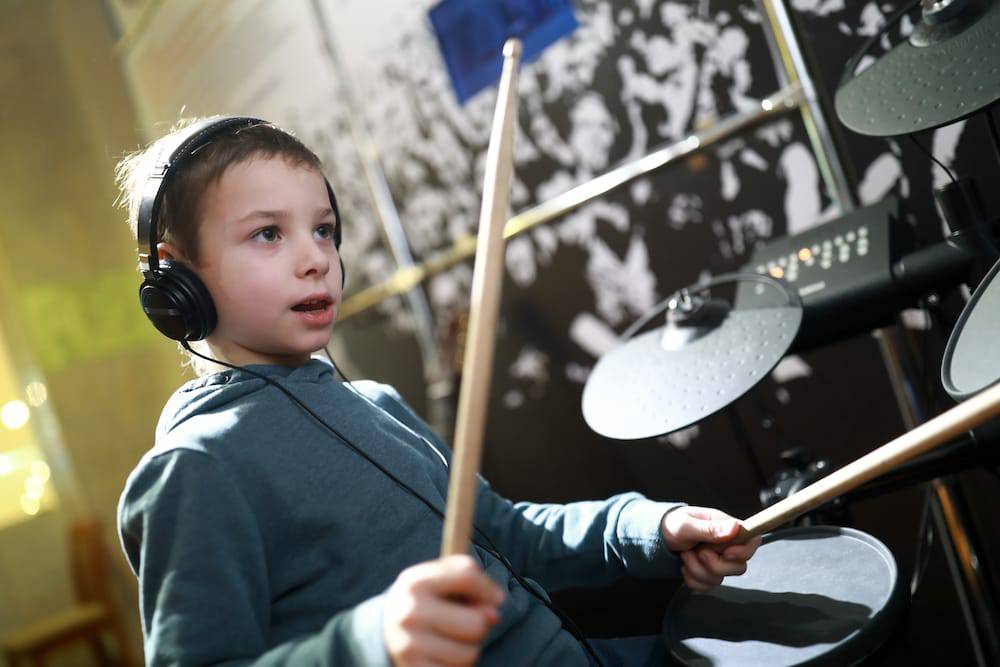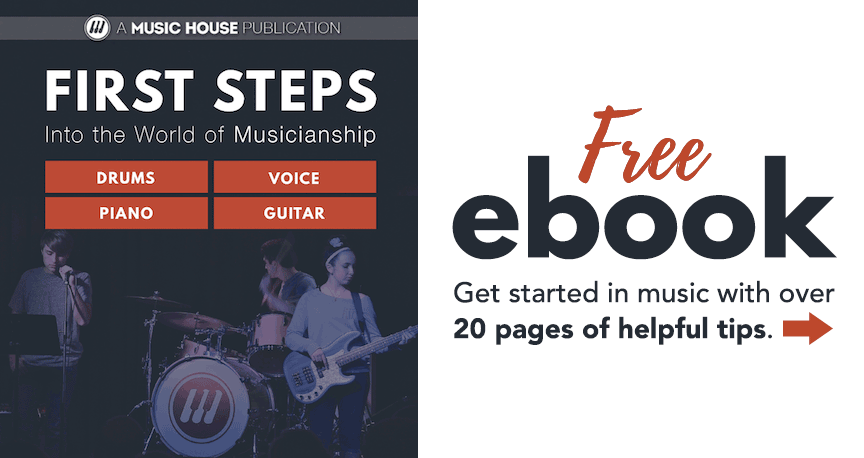The 6 Benefits of Children Taking Music Lessons

A child somewhere on the planet takes up a guitar for the first time and learns to play. Perhaps the child will fall in love with the instrument's sound and aspires to play blues or rock music one day. Have you seen your kid show an interest in learning to play the piano, guitar, or drums?
Although enjoyable and friendly, extracurricular activities are also vital in developing a child's abilities, interests, and passions. Studying to learn how to play an instrument is a gratifying pastime. There has long been a link between musical instruction and academic success, but there are other advantages. Consider the following benefits if you're undecided about enrolling your child in music classes for kids in Overland Park.
Here are some compelling reasons to learn music:
Helps Improve your social skills.
Teaching music to children may have a strong influence on their social development. According to studies, musical children have a better sense of social unity, effortless adjustment, and good attitudes among their classmates. The benefits were more evident in kids who began with the poorest social abilities. When children interact in groups, they must learn to cooperate to reach a shared objective and be tolerant, patient, and encouraging to their friends.
Learning Music raises your self-confidence.
Children's self-confidence may be considerably increased by honing their talents with a particular instrument and attaining their goals. Taking chances and overcoming problems is crucial for a child's overall development. Getting through those first music classes for kids in Overland Park is a struggle in and of itself. Not hitting the notes, misplaying scales, or disastrously using unique keys, chords, and strings can put even the most tolerant among us to the test. Finding the courage to keep going and grow is more than simply a prerequisite for good instrument playing.
Cultivate Patience and Discipline.
Musical training teaches patience and discipline to children. Hours of focus and perseverance are required for music classes. Learning to play an instrument educates children about the importance of deferred gratification. The learning curve for the violin, for example, is relatively high. Students must first learn and adjust how to hold the violin, hold the bow correctly, and position the feet before creating a single note.
In the age of cellphones, social media, and the internet, perhaps never before in history has a lack of patience and discipline been so visible. Most children are born with an insatiable drive for immediate satisfaction. Fortunately, playing a musical instrument does not come with any shortcuts. Becoming proficient requires a lot of time and work. Yet, with or without the child's knowledge, the practice teaches patience and discipline.
It increases their IQ.
Numerous studies, including one by E. Glenn Schellenberg, have proven that children's IQs increase because of even a few weeks of music lessons. Brain scan technology reveals that brain activity increases following musical training. Some parts of the brain even grow more prominent. Different studies have proven that music helps the brain develop. Musical language comprehension can benefit a child's overall mental development.
Studies show that students of music classes are more successful on standardized tests and are likely to achieve better grades in high school. Further research revealed that musical training helps develop the left side of the brain involved with processing language and reasoning. Studies on the effects of music lessons on a child's brain development, including memory and literacy, are published regularly. Furthermore, the data shows a clear link between learning to play music and academic success.
Music is a great way to de-stress while having a good time.
Children are likely to love playing an instrument after they have mastered the fundamentals. Every song they master is a personal triumph. They will have a fantastic time playing their instrument if we encourage them by listening to them or singing along with them. It makes us happy. When youngsters can play Music, it makes them happy, and it makes everyone else happy. Music teaches kids to concentrate and de-stresses them. Playing an instrument or taking a music class requires total concentration. As a result, music is a practical stress-relieving approach that may help you relax and focus.

Music improves math skills, fosters creativity, and aids children with developmental disabilities.
Mathematics and music, despite their seeming differences, have a lot in common. Following his study of seven-year-old youngsters in Los Angeles, Professor Gordon Shaw made the following observation. "When youngsters learn rhythm, they are learning ratios, fractions, and proportions." It might be a fantastic approach to learn arithmetic creatively! Encourage others to express themselves creatively. The study of music helps children discover their creativity and provide them with a means to express it.
Whatever route they take in life, music becomes a way for them to discover freedom and voice. Music is a way of expressing oneself. In addition to being a stress reliever, music may help children better control their emotions, anxiety, and insecurities by communicating and expressing themselves via musical language. On the other hand, learning to play music is essential for children with developmental difficulties and mental health concerns to reach their full potential. Children with autism spectrum disorders, cognitive impairments, attachment issues, cerebral palsy, mental retardation, Rett Syndrome, and Williams Syndrome have all been proven to benefit from music therapy.
The Takeaway
And you thought they were simply learning to play a musical instrument! The advantages of music lessons for children have been the subject of much research. These findings are odd given that society appears to be slashing funding for Music and the arts in the school curriculum.
However, experts worldwide extol the benefits of music lessons for children. There is no doubt that the younger they begin, the more profound the improvements. Scientists recommend starting music classes before the age of seven. However, picking up a musical instrument at any age can give substantial benefits. Providing the best music classes for kids in Overland Park to your children will result in happy, healthy, well-rounded people who excel in life.

